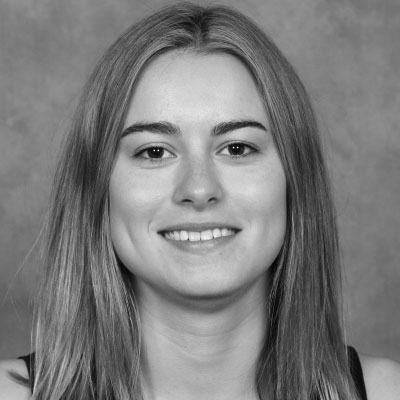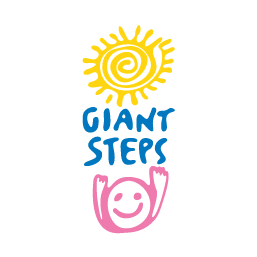Speech Therapy
SYDNEY AND MELBOURNE
Speech Therapy
SYDNEY AND MELBOURNE
Individuals with autism have complex communication needs and generally require support to develop skills across the communicative domains, including social communication, comprehension and expressive communication.
Our approach
At Giant Steps, our speech pathologists focus on developing all aspects of a student’s communication, recognising that comprehension and social communication provide an important foundation for future language development.
Speech pathologists form a part of a transdisciplinary team at Giant Steps and work with students within the context of the classroom, alongside teachers, educators and other therapists, to seamlessly integrate social and communication goals within the teaching and learning program and the students’ daily routines. In this way strategies for promoting student’s communication are supported by all members of the class team across the week resulting in better outcomes for students as there is a consistent approach in implementing strategies and expectations. The end outcome for students’ is a more meaningful application of their communication skills that spans across a range of real-life contexts.
Social reciprocity is one of the core deficits of autism, and not surprisingly one of the key areas in which our students have significant difficulty. Skills such as social initiation, joint attention, turn taking, social referencing, imitation and emotional regulation are key skills that underpin successful and meaningful interactions and expressive communication development. These aspects of communication are worked on simultaneously in authentic and meaningful interactions, and key programs – such as ‘play lessons’ – have been developed at Giant Steps to specifically support the social development of students with autism in a naturally playful environment. ‘Play lessons’ provide students with opportunities to develop skills through the use of motivating and fun activities called ‘hot spots’, that rotate daily. Some examples of regular hotspots at Giant Steps include big block construction (and demolition), live music and dancing, and pamper corner.
Supporting the comprehension of students, including their understanding of the world and their role in it, is key to the engagement of student’s in their teaching and learning program.
In addition, comprehension is vital for developing independence and a sense of self-confidence. A breakdown in a student’s comprehension (such as when an adult pitches the level of language or type of instruction or question above a student’s edge of learning) often results in students feeling confused, overwhelmed, inadequate and stressed and for many of our students they may express these feelings in inappropriate or challenging ways. Assessing the adult communication style used with each student, and changing adult behaviour as a result, is fundamental to reaching a good balance of instructional and conversational language pitched at the right level for each individual student. Assessments of oral comprehension (including instructions and questions) are completed for all students in the school, providing important information about a student’s functional understanding of questions and directions in the context of the classroom. Goals at the student’s edge of learning are developed, and staff tailor teaching and learning strategies to best support the learning needs of each individual student. Students with autism have a strength and preference for visual information, and so the use of visual supports that promote comprehension are used extensively at Giant Steps. These supports are individualised for each student and might include a class daily schedule, a weekly or monthly calendar, an individual daily schedule, first-then boards, car or travel cards, lesson and community access forewarnings, lesson components etc.
At Giant Steps we recognise that our students are individuals, and that a ‘one size fits all’ approach to expressive communication and Augmentative and Alternative Communication (AAC) does not result in communication that is successful and sustained. Therefore, Giant Steps does not prescribe to a single communication product or approach. After developing a profile for each student’s communication needs and preferences, speech therapists work closely with families and school staff to develop an individualised, multi-modal communication system. A multi-modal approach to communication allows us to develop student’s skills over a number of communicative modes, such as speech, gesture, or AAC (including picture or object exchange, switches, picture/communication books, devices programmed with picture or text to speech output). This approach supports student’s to develop one of the key components of communicative competence, the ability to repair communication when it breaks down. Having access to a multi-modal system, even in its simplest form, means that students begin to develop an awareness that they have a number of means to communicate the same message such as pointing to or exchanging a food visual, using a functional gesture for ‘eat’ or pointing to their lunchbox.
SYDNEY TEAM

Katherine Halter
Director of Speech TherapyMSpchLngPath, BSpHearingSc
Katherine Halter has been a Speech Pathologist at Giant Steps Sydney since 2017. Katherine is passionate about supporting people with disability and has experience in providing individualised assessment and intervention for people with Autism Spectrum Disorder and Intellectual Disability including designing a variety of Alternative and Augmentative Communication systems to suit individual communication needs. She has worked alongside teachers to integrate these strategies and supports into teaching and learning experiences. Katherine enjoys working in a dynamic team environment with multiple professionals to provide a holistic approach to targeting communication and comprehension. Katherine has a passion for supporting carers and members of the wider community to understand and implement strategies and supports that promote generalisation of skills across contexts.
MELBOURNE TEAM

